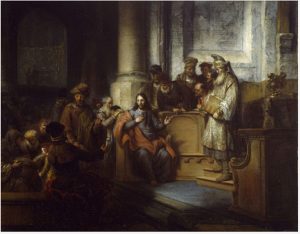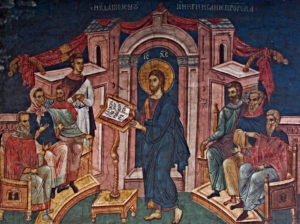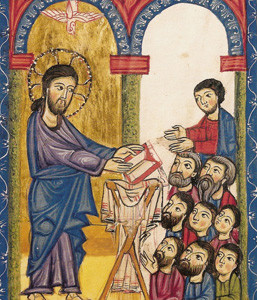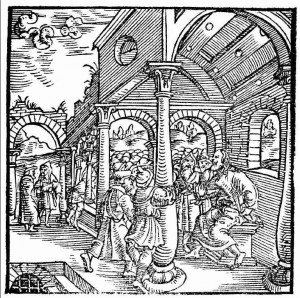Thoughts on Sunday’s Lessons for Jan. 26, 2025 (Epiphany 3C)
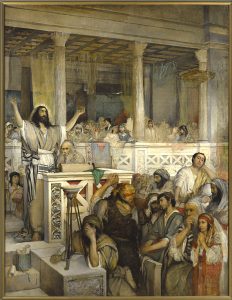
Christ teaching in the synagogue (1878-1879), oil painting on canvas by Maurycy Gottlieb (1856-1879). National Museum in Warsaw, Poland. (Click image to enlarge.)
First Reading: Nehemiah 8:1-3, 5-6, 8-10
Torah – understood as God’s teaching, so holy and beloved that we understand it as law – informs our readings for the Third Sunday of Epiphany. In our first reading, the minor prophet Nehemiah tells about the scribe Ezra reading the Torah to all the people of Jerusalem. They have finally returned home after the exile, but must regain familiarity with Israel’s written tradition. Ezra opens the Torah scroll and spends an entire morning reading and interpreting the text. It is a holy moment as the people, understanding the text perhaps for the first time, weep with joy at this revelation.
Psalm: Psalm 19
In its opening verses, Psalm 19 sings the glory of God. Then its narrative turns to sing the glory of God’s law, Torah, the first five books of the Hebrew Bible, in which God’s covenant with the people is expressed and set in context. These are the holy scrolls that the scribe Ezra read to the community in Sunday’’s first reading – and that Jesus will read and interpret in the synagogue in Sunday’s Gospel.
Second Reading: 1 Corinthians 12:12-31a
This week’s passage from 1 Corinthians immediately follows and builds upon last Sunday’s reading, in which we heard Paul declare that every member of the community brings individual gifts and is called to use those gifts in support of the church. Now Paul likens the people of the church to the body of the risen Christ in the world. Each part of the body is needed. Every part is important, and all of them have to work together. The eye, the hand, the ear, the leg … none can go it alone.
Gospel: Luke 4:14-21
Jesus’s public ministry has begun. Driven by the Spirit that came down at the time of his baptism, he has been tested in the desert, preached and taught in Galilee, and now he returns to the synagogue in his childhood home, Nazareth. Unrolling the Torah scroll to the Prophet Isaiah, he reads verses that will define his mission, ideas that echo his mother’s song and God’s covenant with the people at Sinai. This scripture is fulfilled in him, he declares. He has come to bring good news to the poor and the oppressed, and to declare the year of Jubilee in which slaves are freed and debts are forgiven.

